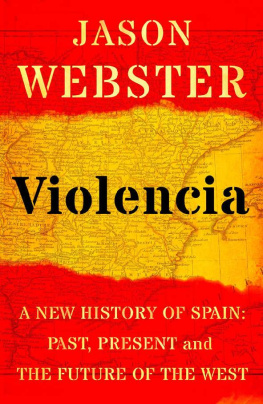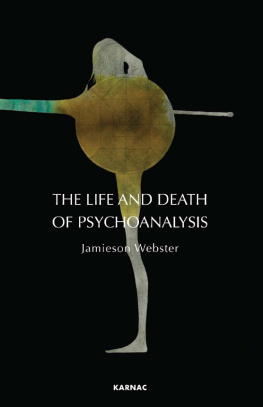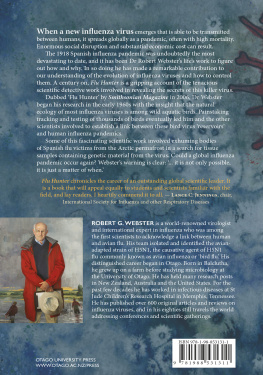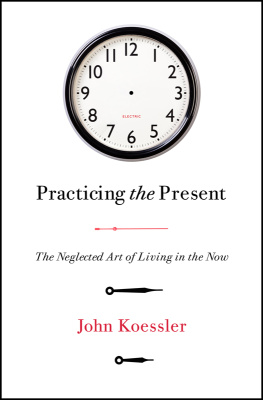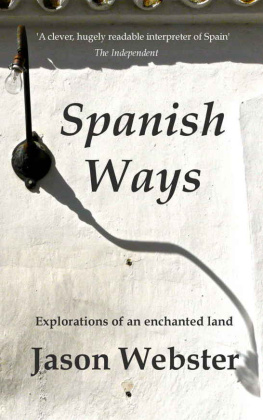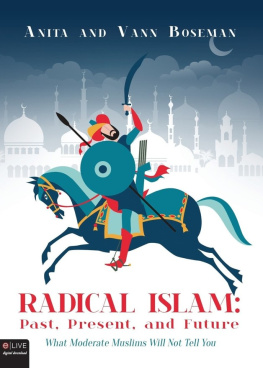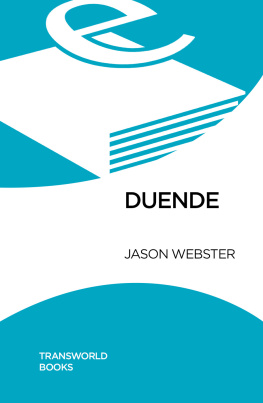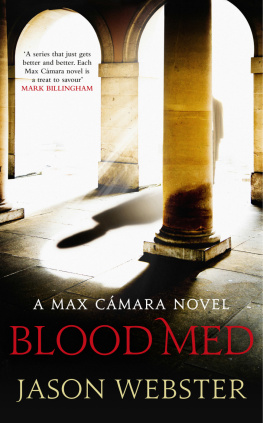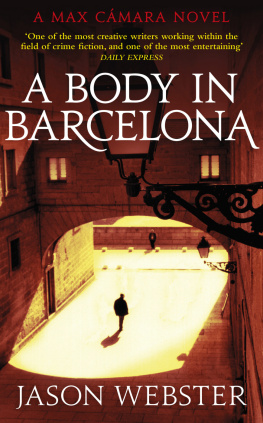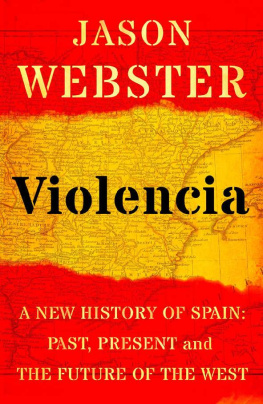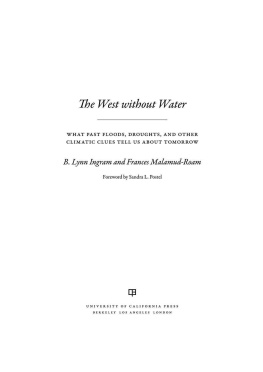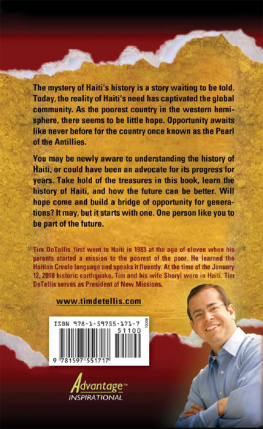Webster - Violencia: a new history of Spain: past, present and the future of the West
Here you can read online Webster - Violencia: a new history of Spain: past, present and the future of the West full text of the book (entire story) in english for free. Download pdf and epub, get meaning, cover and reviews about this ebook. City: Spain, year: 2019, publisher: Little, Brown Book Group;Constable, genre: Art. Description of the work, (preface) as well as reviews are available. Best literature library LitArk.com created for fans of good reading and offers a wide selection of genres:
Romance novel
Science fiction
Adventure
Detective
Science
History
Home and family
Prose
Art
Politics
Computer
Non-fiction
Religion
Business
Children
Humor
Choose a favorite category and find really read worthwhile books. Enjoy immersion in the world of imagination, feel the emotions of the characters or learn something new for yourself, make an fascinating discovery.
Violencia: a new history of Spain: past, present and the future of the West: summary, description and annotation
We offer to read an annotation, description, summary or preface (depends on what the author of the book "Violencia: a new history of Spain: past, present and the future of the West" wrote himself). If you haven't found the necessary information about the book — write in the comments, we will try to find it.
Violencia: a new history of Spain: past, present and the future of the West — read online for free the complete book (whole text) full work
Below is the text of the book, divided by pages. System saving the place of the last page read, allows you to conveniently read the book "Violencia: a new history of Spain: past, present and the future of the West" online for free, without having to search again every time where you left off. Put a bookmark, and you can go to the page where you finished reading at any time.
Font size:
Interval:
Bookmark:
BY THE SAME AUTHOR
NON-FICTION
Duende: A Journey in Search of Flamenco
Andalus: Unlocking the Secrets of Moorish Spain
Guerra!: Living in the Shadows of the Spanish Civil War
Sacred Sierra: A Year on a Spanish Mountain
The Spy with 29 Names: The Story of the Second World Wars Most
Audacious Double Agent
Spanish Ways: Exploration of an Enchanted Land
THE MAX CMARA NOVELS
Or the Bull Kills You
A Death in Valencia
The Anarchist Detective
Blood Med
A Body in Barcelona
Fatal Sunset

CONSTABLE
First published in Great Britain in 2019 by Constable
Copyright Jason Webster, 2019
The moral right of the author has been asserted.
All rights reserved.
No part of this publication may be reproduced, stored in a retrieval system, or transmitted, in any form, or by any means, without the prior permission in writing of the publisher, nor be otherwise circulated in any form of binding or cover other than that in which it is published and without a similar condition including this condition being imposed on the subsequent purchaser.
A CIP catalogue record for this book is available from the British Library.
ISBN: 978-1-47212-982-6
Constable
An imprint of
Little, Brown Book Group
Carmelite House
50 Victoria Embankment
London EC4Y 0DZ
An Hachette UK Company
www.hachette.co.uk
www.littlebrown.co.uk
For Arturo and Gabi
The Spanish prefer war to resting, and if they have no enemy abroad, look for one at home.
Pompeius Trogus (first century BC)
The Spanish have made great discoveries in the New World, yet still do not know their own continent: there are sections of her rivers which they have not explored, and in her mountains live nations which are unknown to them.
Charles de Montesquieu
Perhaps no other country except Turkey is so little known and so ill judged by the rest of Europe as Spain.
Karl Marx
Spain never changes.
George Borrow, The Bible in Spain
T his book describes in part how a geographical reality has at times been turned into a political one. Spain can refer to both. As this double meaning creates complications, for the sake of simplicity I often refer to the geographical Spain as the Peninsula for short.
In a similar vein, Castilian Spanish spellings for cities and individuals are generally used, except where an English rendition is more common. Hence Ferdinand is preferred in the case of the Catholic Monarch and husband of Queen Isabella, but the nineteenth-century king of the same name is referred to as Fernando. As the book is mostly focused on Spain, the Holy Roman Emperor Charles V goes under the Spanish version of his name, Carlos.
S pain is a Cassandra, forever predicting the future of those around her; what happens there foreshadows events elsewhere.
But as with Homers doomed prophetess, Spain is rarely heard, for her prescient gifts are unrecognised. A more commonly held view is that, in most matters, Spain is generally behind her European neighbours (if in a Romantic kind of way).
Even a brief glance at Spanish history, however, bears out the fact that, on highly important issues, she is almost always in the lead: the Crusades, the European Renaissance, the Discovery of the Americas, Western imperialism, Liberalism, post-colonialism, the Second World War, the Cold War and the recent Occupy movement are all either driven by, presaged by, or built on, Spanish endeavour and experience. Without Spain, emblematic aspects of Western civilisation as diverse as rational thought, modern surgery and the American cowboy would all be missing. Not only that: in a theoretically Spain-less world, there is no desert-island story, no courtly or romantic love, no chivalry, no modern literature or painting, no Animal Farm or 1984 and the warnings they still sound for contemporary society. On all kinds of levels culturally, politically and socially developments in Spain present powerful indications of the way things will go in the rest of Europe and the West.
Given this tendency, you might be forgiven for assuming that all eyes would be fixed on Madrid and Barcelona both for mapping out the past and for indications of what is to come. Yet this is very far from the case. In 1969, Kenneth Clark wrote this in the introduction to his Civilisation:
Some of the most offensive omissions were dictated by my title. If I had been talking about the history of art, it would not have been possible to leave out Spain; but when one asks what Spain has done to enlarge the human mind and pull mankind a few steps up the hill, the answer is less clear.
Extraordinarily, for Clark the Spanish had done nothing to advance the European mind, and so had no place in his magnum opus. Echoing a generally held view, the country had played little part in the history of ideas, so why look to it for the future?
As with Cassandra, so with Spain: the rest of the world ignores her and carries on, convinced that their own particular Troy will never fall. Spain may be viewed as a pleasant tourist destination, as one of a handful of economically fragile Mediterranean countries propped up by the rest of the European Union, as a nation of passion, colour and fiesta in all manner of ways but it is seldom seen as pathfinder or harbinger, despite acting as a gauge of the winds of time over many hundreds of years.
The cause for this myopia lies as much with the Spanish themselves as with outsiders. As with most peoples, Spaniards are generally proud of their countrys achievements. But ask what those achievements are and many would struggle to recognise a large number of the examples given above. In fact, an average Spanish person is more likely to inform you that the (admittedly laudable) pastime of table football was invented by one of his compatriots, than that the scalpel, speculum and over two hundred other common surgical instruments were first devised by a Cordoban of the twelfth century. Or that a clunking long-distance train known as the Talgo was the fruit of Spanish industrial design, than that the concept of human rights was first debated over four hundred years ago in Valladolid.
And this is because Spain is locked in perpetual civil conflict: every century in the countrys history has witnessed at least one major civil war, often several. In consequence, Spain periodically blinds herself to huge swathes of her own past in an attempt to forge new national identities. By drawing a veil over aspects of her history, pretending that they never happened or placing them in some sanitising parenthesis, she tries to create a positive out of a negative aimed at uniting a notoriously disunited people: If we are not that, then we must be this.
The most recent example of this collective act of forgetting came in the wake of the dictator Francos death in 1975. In what was actually called the pact of forgetting or the pact of silence, the bloodshed and crimes of the previous decades were made to vanish in what was viewed as a pragmatic move to help pacify the many forces which might have brought down the nascent democratic state. Dont mention the war! became the unspoken watchword.
Another lasting and perhaps more serious example is found in how the Moorish period of Spanish history is viewed to this day. The orthodoxy is that the Moors are Other, are them, and that the Spanish side of that particular chapter involves nothing more than the defeat and expulsion of the invader (over the course of some eight hundred years, no less). That a thriving and highly advanced civilisation could exist in a country for almost a millennium and then be effectively wiped from the national story by pretending that we had nothing to do with it is clearly absurd. And yet the reason why an average Spaniard cant tell you that, to take our example, modern surgery was invented by one of his own, is because that man was a Muslim, spoke Arabic and went by the name of Al-Zahrawi. In the Spanish imagination he is, at a stroke, removed from the collective narrative as a non-Spaniard.
Next pageFont size:
Interval:
Bookmark:
Similar books «Violencia: a new history of Spain: past, present and the future of the West»
Look at similar books to Violencia: a new history of Spain: past, present and the future of the West. We have selected literature similar in name and meaning in the hope of providing readers with more options to find new, interesting, not yet read works.
Discussion, reviews of the book Violencia: a new history of Spain: past, present and the future of the West and just readers' own opinions. Leave your comments, write what you think about the work, its meaning or the main characters. Specify what exactly you liked and what you didn't like, and why you think so.

